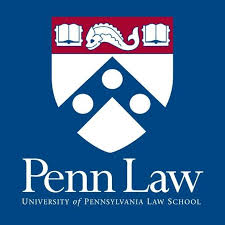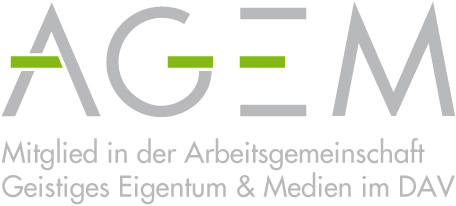Dr. Jürgen K. Wente
Dr. Jürgen Wente is a passionate lawyer. His passion for the profession has led him to set up his own practice as a solo attorney. Who he is and how it came about, you can read here.
Key Areas
Background
Dr. Jürgen Wente has been working as a lawyer in Munich for over 30 years. His legal consulting practice is characterized by the realization that even a lawyer who is well prepared and competent in legal matters cannot give legally sound advice if he has not really internalized the life issues at stake.
His interest in new media as well as in IT law was influenced by his experience as publisher of a school newspaper distributed throughout Lower Saxony as well as by his interest in IT, which he developed during his studies in the U.S.A. As a result, he has been able to win as clients entrepreneurs and medium-sized companies from these very sectors of media and IT, many of which have been using his services for decades. Originally coming into contact with copyright law through the software and film licensing business, his field of activity quickly expanded to include the supervision of broadcasting and the organization of broadcasting, i.e. on the one hand the organization of broadcasting under private law, and on the other hand the licensing of broadcasters and providers. To this day, copyright and entertainment law is one of his main areas of work. Dr. Wente has therefore qualified as a specialist attorney for copyright and media law.
When Dr. Wente started his work, EDP and film production were still two very distant economic sectors. Today they have grown together. IT and media are not only mentioned in the same breath, meanwhile one without the other is already unimaginable. The resulting upheavals in the media industry, as well as its consolidation, repeatedly confronted him with insolvency law aspects in the media and entertainment industry. In the context of one of the largest insolvencies in the German media industry, he was able to demonstrate his expertise in copyright law as well as insolvency law when it came to the question: Who owns the film licence in insolvency?
The basis of all economic activities is corporate law. If people join forces to produce a film or a radio program, then they already form a BGB company (if not otherwise agreed upon). When they seek legal advice, they implement their plan using a corporate form that limits personal liability . Therefore, early in his career, Jürgens corporate law practice was (and still is) an essential aspect of his business when it came to the establishment of broadcasting companies or film trading and software companies. As a co-founder of Framepool AG, which specializes in the marketing of outtakes (high-quality film snippets that have been selected for secondary exploitation), he has also had intensive contact with corporate practice and therefore understands how the constraints of operational business influence decisions. To round out his expertise in corporate law, Dr. Wente completed training as a specialist attorney for commercial and corporate law in 2013.
Prior to that, he was also intensively involved in all aspects of mergers and acquisitions outside the media business. The reunification of Germany as well as the fall of the Iron Curtain extended his range of activities in the context of the privatization of formerly state-owned or nationally owned companies to Mergers and Acquisitions as well as Restructuring. This experience in privatizing companies in the so called five new federal states soon led to corresponding assignments in Estonia, Latvia and Lithuania as well as Romania.

In addition to his native language, Dr. Wente is fluent in English on business level. This is based on his academic training at the University of Pennsylvania Law School, from which he graduated with a Master of Laws degree in 1985. Negotiations of film licensing agreements with U.S.-based producers as well as advising U.S.-based software companies have completed this language expertise.
Publications
- Does Section 103 InsO apply in the event of insolvency of the company subject to the service obligation? ZIP 2005, S. 335 ff.
- On the suspension of the execution of § 9 para 3 Radio broadcasting statutes of the BLM, comment on the decision of the VGH ZUM 1999, S. 389 ff.
- License analogy to typical exclusive license agreements – at the same time a contribution to the determination of the license fee in case of infringement of rights to use films due to a premature rescission of rights ZUM 1997, S. 643
- Legal Consequences of an Extraordinary Termination of a Licencing Agreement beeing part of a “Chain of Title” in the Film Licensing Business and its Consequences for the Drafting of Contracts GRUR 1997, S. 96 ff. (mit Phillipp Härle)
- The Meaning of the Concept of the ‘Person Entitled to Dispose of the Property’ for the Applicability of the VermG VIZ 1992, S. 125 ff.
- Legal protection against indexing decisions by the Federal Review Board for Publications Harmful to the Youth (Bundesprüfstelle für jugendgefährdende Schriften), ZUM 1991, S. 561 ff.
- Protection of personality and the public’s right to information in criminal proceedings,Der Strafverteidiger 1988, S. 216 ff.
- The exploitation of unlawfully researched material, ZUM 1988, S. 438 ff.
- The access of journalists to private events, ZUM 1987, S. 167 ff.
- The Right of Journalistic Investigation – A Contribution to the Conflict between Media Freedoms and Informational Self-Determination, Nomos-Verlag 1987, ISBN 978-3-7890-1383-6
- Basic principles of broadcasting law in the United States of America, UFITA 103, S. 131 ff.
- Is the data publication a data transmission or not? RDV 1986, S. 256 ff.
- Disclosure powers of public authorities under press law – note to a judgment,NStZ 1986, S. 366
- Informational Self-Determination and Absolute Third-Party Effect of Fundamental Rights, NJW 1984, S. 1447 f.
Memberships
Curriculum Vitae
| 1957 | born in Hannover |
| 1976 | Graduated in Hannover |
| 1976-1977 | Military Service (ROA) |
| 1976-1980 | Studies of Laws in Göttingen |
| 1980-1982 | Studies of Laws in Freiburg |
| 1983-1984 | Doctoral studies Göttingen/Freiburg, assistant at the Chair of Public Law University of Freiburg, degree Dr. iur. |
| 1984-1985 | Master’s degree program at UPenn Law School, P.A., U.S.A., LL.M. degree. |
| 1985-1988 | state traineeship in Bonn, 2nd state examination in Düsseldorf |
| 1988 | Admission to the bar in Munich |
| 1988-2013 | Lawyer and Partner at Heiss & Partner, Munich |
| 2000-2003 | Chief Legal and Financial Officer of Framepool AG, Munich |
| since 2012 | Specialist Attorney for Copyright and Entertainment Law |
| 2013 | Completion of training as a Specialist Lawyer for Commercial and Corporate Law |
| 2013-2020 | Lawyer and partner at Büsing Müffelmann & Theye |
| since 2020 | Lawyer in own law firm |











